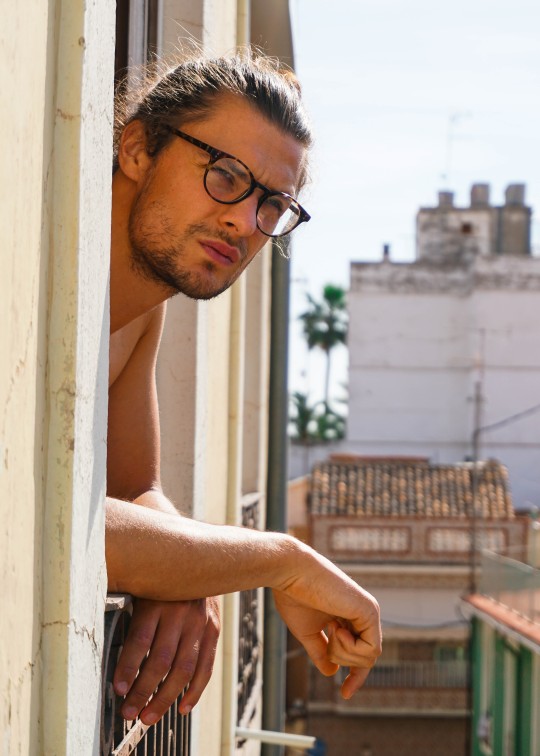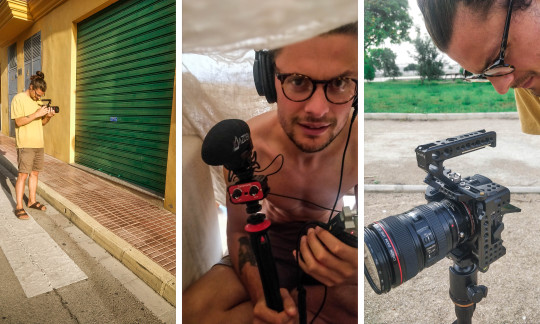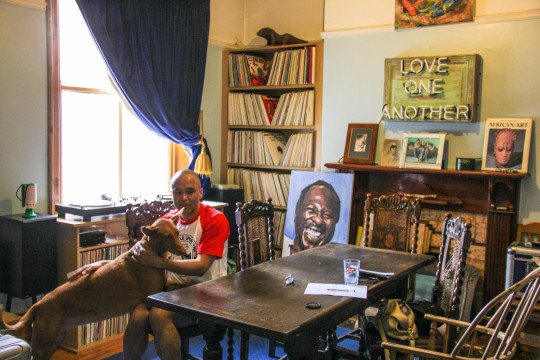#plus he gave a very impassioned speech about how church is about justice
Text
The pastor from the nearest neighborhood congregation (I think they're Methodist maybe) posted on the neighborhood Facebook group that their musician/accompanist had to go to the hospital and did anyone know anybody who was willing to play for the service on Sunday?
And nobody had said anything so I messaged the pastor that if he hadn't found anybody, I could probably do it as long as they weren't expecting anything amazing. I played the piano in church a lot growing up but since Mormon congregations are all volunteer, I consider myself a "competent amateur" since I didn't even study music in college or anything
Anyhow, I met with him and he showed me the music and I think I picked it up enough to play tomorrow. And then he was like "oh by the way, we pay the church musicians $125 a week" and I was very much just like ? ??? ????
I mean. Like I said, I'm used to Mormon congratulations where literally everyone is a volunteer, including the pastor, so the concept of getting paid to play church music is so foreign to me. It makes total sense! But I can tell that my brain is like. You're going to pay me???? For church music???
Anyway we'll see how it goes tomorrow. He said he's also looking for a backup musician for another church he preaches at and might want me next week too. Which, I'm not opposed. It would get me actually practicing piano and organ again.
#plus he gave a very impassioned speech about how church is about justice#about black lives matter and lgbtq are welcome#and even nonbelievers are welcome if we're willing to seek justice and build community#so like#I'm hoping at least that the service is palatable
4 notes
·
View notes
Text
Keep On Pushing: Week 20 and a 1/2, Spain
Move on up, and keep on wishing
Remember your dream is your only scheme
So keep on pushing

In looking for a title for this week (and a half)’s blog, I was reminded of the words of Curtis Mayfield. These words, from one of my all-time favourite songs ‘Move On Up’ are also painted across the walls of my all-time favourite nightclub, World Headquarters in Newcastle.
‘Keep on Pushing’ feels like an appropriate mantra for the last ten days for a variety of reasons. Firstly, the longer life is affected by measures to manage the Covid-19 pandemic (despite us no longer being under strict lockdown), the more I have to push to stay positive. As I’ve mentioned in this blog before, part of that process is making my peace with a new 2020, one in which we travel less in the van, stay put in Spain for longer and innovate to make Broaden, our videography project, stay afloat amid it all.
On that note, the last week and a half has seen George and I make progress on a number of projects. I’m still working on the video about ‘Ecological Economics’ which I’ve been making for a while now, and last Saturday we recorded a voiceover to go with some of the footage of an interview I did with the wonderful economist Simon Mair. It was pretty fun to make a homemade vocal booth (basically a den made with chairs, sheets and cushions) in order to record the sound! I’ll be starting on animated graphics for that video too, so hopefully it’ll be out soon.
I’m really looking forward to starting a conversation about what alternative economic futures might look like post Coronavirus.
In addition to the Ecological Economics video, we’ve wanted to film the beautiful little town of Corbera for a while now. On Sunday we finally got around to doing just that as part of an initiative called ‘Have You Ever Heard Silence’. The project, started by a videography firm in Germany, seeks to bring people from around the world together to capture footage of life throughout the pandemic.

(images, left to right) Filming in the town of Corbera, recording a voiceover, and more shots for the ‘Have You Ever Heard Silence’ project.
As part of this project, we wanted to capture the essence of the town when it’s still relatively quiet - before the cafes have filled up and the church opens its doors for service. So we headed out early morning, as the first signs of life emerged - people out walking their dogs, cafe owners setting up chairs and tables, and old ladies out in their aprons sweeping their front doorsteps. It was a special experience to capture this place that we’re staying in and have grown to love, and I can’t wait to see the footage as part of the ‘Have You Ever Heard Silence’ documentary.
I’ve started to cut together some of that footage into shorter videos on our instagram too, including one with a quote from writer and thinker Charles Eisenstein. It’s from his recent essay ‘The Coronation’, which is absolutely worth a read and presents an interpretation of this pandemic in a slightly different way than the mainstream save-lives-at-all-costs approach. He says:
“How much of life are we willing to sacrifice at the altar of security?
View this post on Instagram
A post shared by George Webster & Bryony Simcox (@broaden._) on Jun 13, 2020 at 6:28am PDT
(video) Shots from filming in Corbera.
The other reason that ‘Keep On Pushing’ felt an apt title is the ongoing struggle against systemic racism. I discussed some of my initial shock at George Floyd’s murder in last week’s blog post, but this week I have observed a shift both in terms of the messaging from the ‘Black Lives Matter’ movement as well as a shift internally. As time unfolds, I push forward to process not only George’s killing, the ensuing protests (and even now, the counter protests from far-right groups), but the underlying issues at play in society and the potential solutions to such a systemic problem.
While the movement against racism is finally receiving mainstream visibility, it doesn’t mean this fight hasn’t been going on for centuries. In the words of Audre Lorde, “Revolution is not a one-time event”. There has been some fantastic archival footage doing the rounds on social media, of the likes of Gil Scott-Heron on racism and change back in the 90s, or of David Bowie calling MTV out for their lack of black representation in 1983. In a way, the more I realise people have been demanding justice, equality and fairness for so many years, fighting the same fight that people today are fighting in the name of George Floyd, Breonna Taylor and Ahmaud Arbery, the more shocking it is that there is still so much work to be done.
Revolution = Knowledge + Empathy + Action
This is Rachel Cargle’s ‘recipe for revolution’. I’ve found it to be such a clear, logical and empowering approach to changing a systematic problem and knowing where to start. And whilst this recipe is referring to a revolution where people are no longer discriminated based on race, I think this combination of learning plus feeling plus doing is a pretty powerful combination for taking on other issues too, like climate change, sexism and neoliberalism.
For me, part of this learning process has been looking back at my own life and the ways in which I’ve been on the receiving end of an invisible bias - a bias based on the colour of my skin. And time again when I ask myself this question, the most obvious (and also uncomfortable) example of this privilege is my experience of living in Australia (2016-19).
Moving to a country on the other side of the world gave me an insight into the kind of rigorous process migrants face as they try to obtain visas and work permits to get into places like Britain. And while the visa process I experienced as I transitioned my ‘Working Holiday Visa’ onto a ‘Skilled Temporary Worker Visa’ was invasive, expensive and unpleasant, I absolutely know it would be so much harder for people from ‘less favourable’ countries or with more ‘foreign-sounding’ names to go through the same process. On top of that, this kind of entry process discriminates against older people (you can’t get the Working Holiday if you’re over 30) or people whose skills aren’t deemed ‘Skilled’, or who don’t have the money for the process either. In so many ways, my experience in Australia was made easier because I’m white, I’m from the commonwealth and English is my mother tongue.
Beyond observing the ways in which I was treated in Australia, whilst I lived there it quickly became apparent that the country has a long way to go to reconcile its oppressive and colonial past, and the ongoing racism directed towards Aboriginal and Torres Strait Islander peoples.
Beyond the utterly appalling fact that these people weren’t even recognised as human beings until 1967, their subsequent treatment continues to be unjust. It is with sadness, and even shame, that I’m able to reflect so joyfully on my time spent in a country in which its own government treats the very people from that land so poorly. My memories of a beautiful country, a well-paid job and a fantastic circle of friends sit uncomfortably alongside a different reality played out in shocking statistics. First Australians are the most incarcerated race in the world, have some of the highest suicide rates globally, and there have been over 432 Indigenous deaths in custody (since the 1991 Royal Commission into this statistic).
Fuelled by statistics like these, and in light of global ‘Black Lives Matter’ protests, Vanessa Turnbull Roberts recently made an utterly compelling speech. Vanessa is a Bundjalung woman, law & social work student and human rights activist, and she spoke in anticipation of a march planned the following day in Sydney. She spoke about the pain of Aboriginal people in Australia, the need for accountability, and the importance of justice in a way which was deeply, deeply moving. And whilst I highly recommend watching the whole speech, what she specifically said about kinship has really stuck with me:
“Law is what builds the colonial system. But where my sisters and brothers come from, we’re built off lore. L-O-R-E: where we work on kinship and we stand up for one another.”
View this post on Instagram
A post shared by Nessa Turnbull Roberts (@nessaturnbullroberts) on Jun 5, 2020 at 1:15am PDT
(video) Vanessa Turnbull Roberts speaking in Sydney.
There’s been a tendency for people to look at the situation in places like Australia or America and say that racism doesn’t exist in the UK. But the colonial systems which have affected those countries have deep roots tracing back to the UK, and the legacy of colonialism is alive and real there. Artists and activists like George the Poet (whose recent interview with Emily Maitlis on BBC Newsnight is well worth a watch) and Akala have spoken out about race and the UK. The voices of Black people living in Britain like these two inspirational guys have really encouraged me to peel back the layers of the UK’s history and to take a deeper look at the country that I’m from.
All of this has in some ways left me feeling overwhelmed and deflated. This past week, as I’ve balanced an unplanned period living in Spain with enormous systemic issues like racism (a strange dualism which I wrote about in last week’s post), I guess the single thread is that I’ve tried to keep on pushing. And someone who really embodies that impassioned quest for a better world is Tommy Caulker.
Tom Caulker is one of those people that I am honoured to have met. As a DJ, night-club owner, and activist for racial harmony, Tom’s life is his mission, and his mission is to make Newcastle a more tolerant and inclusive place.

(image) A portrait I took of Tom in his home back in 2015 for my blog post.
So I conclude this post with the third reference to ‘Keep on Pushing’, as those same words are painted across the walls of World Headquarters nightclub, the club that Tom Caulker founded. I first came across the club in my time at uni, and fell in love with the place’s unpretentious character, inclusive atmosphere, and the Northern Soul, funk and disco music that was played. It was only after I learnt a bit more about the club’s founder that I became intrigued in its story and its mission, and ultimately asked Tom if I could interview him (believe it or not for a blog post on here almost five years ago!).
In that interview, it became apparent that Tom is a man who lives his mission. He wears his heart on his sleeve, believes in a better world, and takes concrete actions to create that world. In that interview, we spoke about a short film that Channel 4 were in the process of making about him and the club. Five years on, and I’ve stumbled across the finished video and watching it in lockdown has been a real inspiration.
youtube
(video) The Channel 4 short documentary about World HQ.
In the video, Tom talks more about his experiences growing up in the UK and being subjected to racism at school, a formative background which influenced his later position at the renowned Trent House pub. In response to overt racism displayed by police, doormen and institutions in the North East in the 80s and 90s, Tom used music to promote inclusion - first at Trent House and later at World Headquarters, which he continues to run and DJs at. Tom describes the place as “a beacon of tolerance”. Far more than just a club, World Headquarters is a place that stands for something, and proudly displays its values on its walls through paintings, posters and slogans, of which include the mural of Curtis Mayfield with his powerful ‘Move On Up’ lyrics.
So as I wrap up another post, reflecting on the pleasure of interviewing Tom and the energy he exudes, I’m left feeling optimistic. There is much work to be done, but we’ve just got to keep on pushing...
#keep on pushing#Curtis Mayfield#Black Lives Matter#World Headquarters#Sydney#Newcastle-Upon-Tyne#lifeinlockdown#journal#growth
0 notes